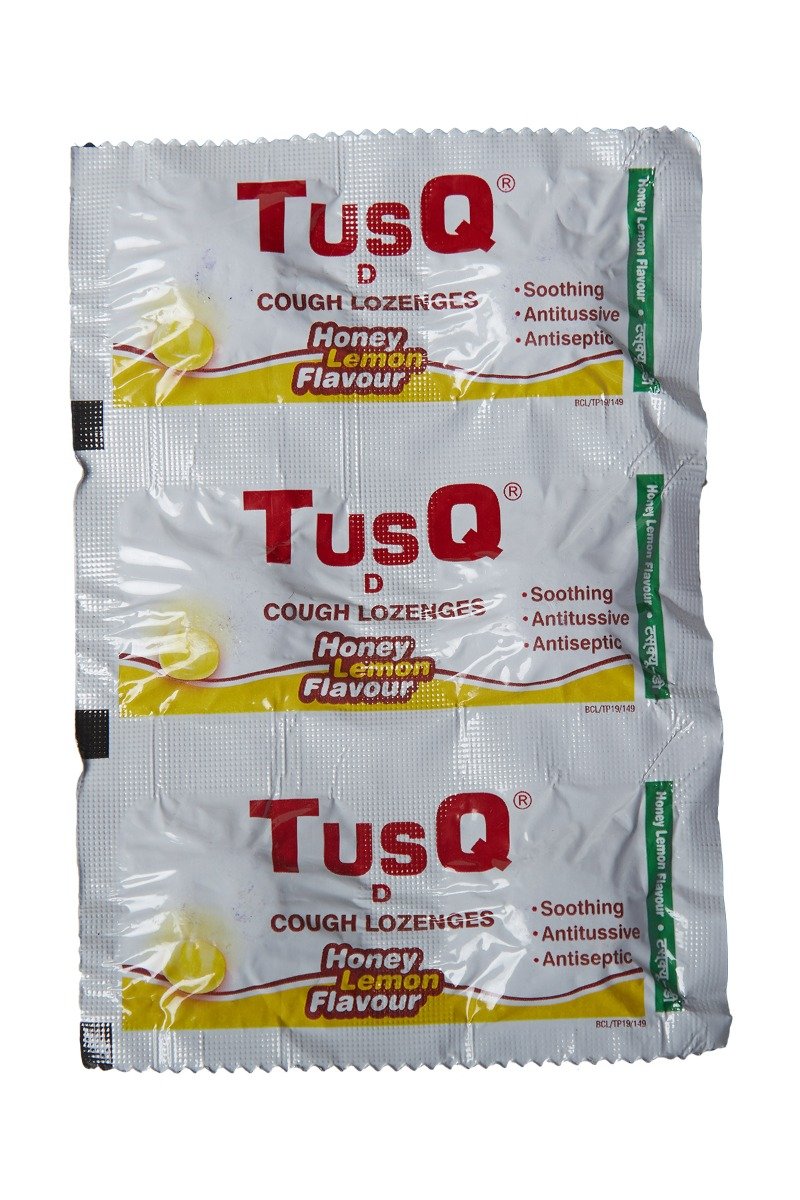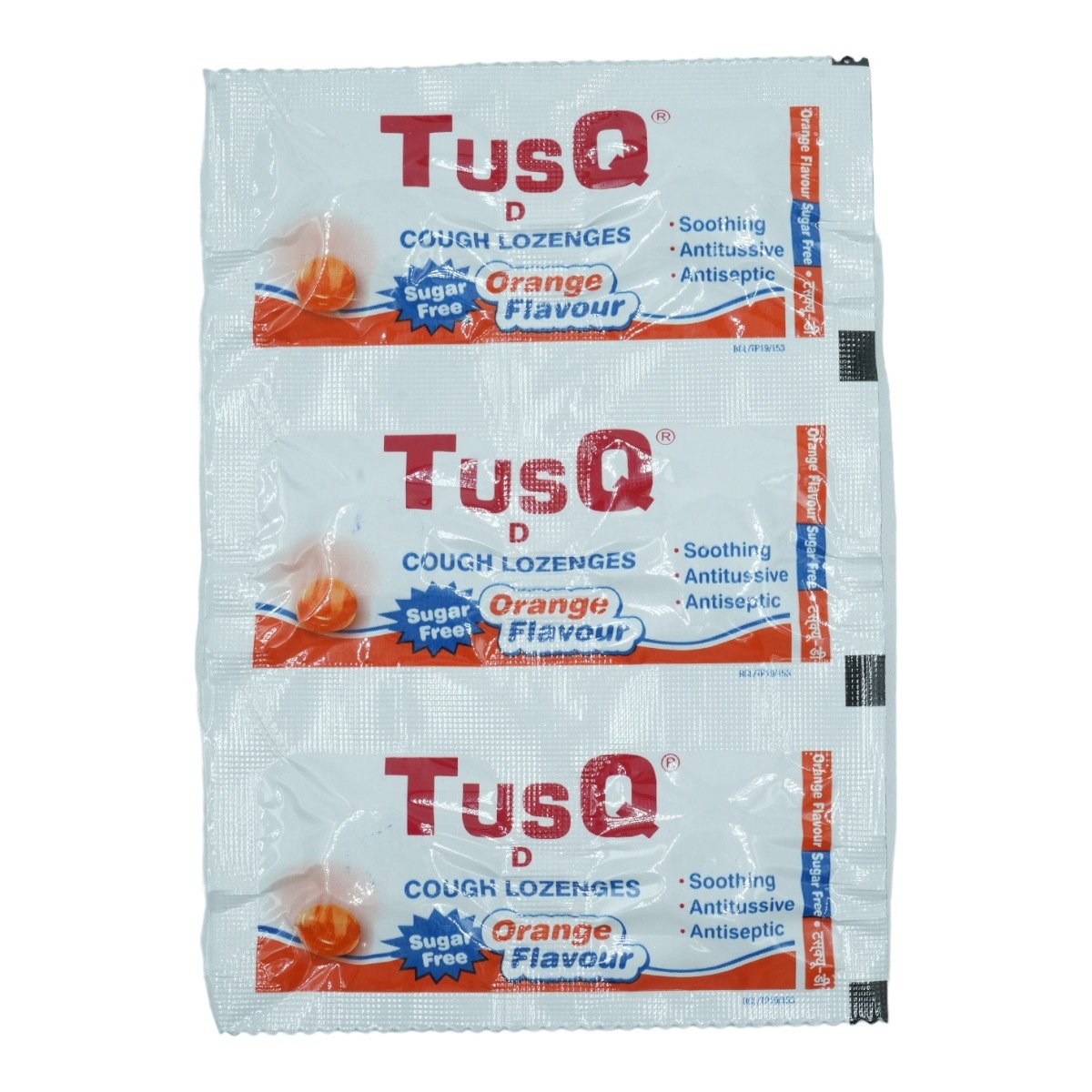Dextromethorphan+amylmetacresol
About Dextromethorphan+amylmetacresol
Dextromethorphan+amylmetacresol belongs to the class of medications called ‘antitussives' used to treat dry cough associated with cold/flu, allergies, and throat irritants. A cough is a reflex action that helps to clear any foreign material or irritants in the throat. Dry cough refers to a cough with no mucus (sputum) or secretions. A dry cough is mostly treated with cough suppressants and throat lozenges.
Dextromethorphan+amylmetacresol is a combination of two medicines: Dextromethorphan and Amylmetacresol. Dextromethorphan is a cough suppressant. It acts by blocking the cough center's action in the brain that is responsible for the cough reflex. Amylmetacresol is an antiseptic. It acts by stopping bacterial growth, which is causing mouth and throat infections. It can provide relief from a sore throat which is usually accompanied by a dry cough.
You should take this medicine as prescribed by your doctor. The common side-effects of Dextromethorphan+amylmetacresol are dizziness, drowsiness, sleepiness, confusion, nausea, agitation, and sore tongue. These side-effects usually go away without any treatment. However, inform your doctor immediately if any of these side-effects persist or get worsen.
Do not take Dextromethorphan+amylmetacresol if you are allergic to Dextromethorphan, Amylmetacresol, or any other ingredients present in it. Before taking Dextromethorphan+amylmetacresol, inform your doctor if you have any chronic (long-term) or persistent cough, lung diseases such as asthma or emphysema, liver diseases, or taking antidepressants within 14 days before taking this medicine. Dextromethorphan+amylmetacresol contains sugars, so inform your doctor if you have diabetes or intolerance to sugars. Dextromethorphan+amylmetacresol is not recommended for children under 6 years of age. Also, inform your doctor if you are pregnant or breastfeeding.
Uses of Dextromethorphan+amylmetacresol
Medicinal Benefits
Dextromethorphan+amylmetacresol is a combination of two medicines: Dextromethorphan and Amylmetacresol. Dextromethorphan is a cough suppressant. It acts by blocking the cough center's action in the brain that is responsible for the cough reflex. Amylmetacresol is an antiseptic and has bactericidal action. It acts by killing the bacteria, which is causing mouth and throat infections. It can provide relief from a sore throat which is often accompanied by a dry cough. Together, Dextromethorphan+amylmetacresol can effectively treat dry cough.
Directions for Use
Storage
Side Effects of Dextromethorphan+amylmetacresol
- Dizziness
- Drowsiness
- Sleepiness
- Confusion
- Stomach upset
- Nausea
- Agitation
- Sore tongue
Drug Warnings
Do not take Dextromethorphan+amylmetacresol if you have taken antidepressants (especially monoamine oxidase (MAO) inhibitors and selective serotonin reuptake inhibitors (SSRIs)) within 14 days as it may cause life-threatening side-effects. Dextromethorphan+amylmetacresol should be used with caution in children with a history of allergies. Do not use any other cough or cold medicines while using Dextromethorphan+amylmetacresol. Do not use Dextromethorphan+amylmetacresol for prolonged periods as it may lead to drug dependence, even at recommended doses, especially in patients with a history of alcohol abuse and depression. Dextromethorphan+amylmetacresol may cause withdrawal symptoms such as restlessness, sweating, palpitations (pounding heart), chills, agitation, difficulty to sleep, nausea, and vomiting.
Drug Interactions
Drug-Drug interactions: Dextromethorphan+amylmetacresol may interact with antidepressant medications (amitriptyline, bupropion, fluoxetine, fluvoxamine, imipramine, paroxetine, and sertraline), nonsteroidal anti-inflammatory drugs (celecoxib), a medication used to treat too much of parathyroid hormone (cinacalcet), a medication used to treat urinary incontinence (darifenacin), anti-cancer medication (imatinib), a medication used to treat arrhythmias (quinidine), a medication used to treat chest pain (ranolazine), a medication used to treat HIV (ritonavir), an appetite suppressant (sibutramine), antifungal drug (terbinafine), and medicines to treat high blood pressure.
Drug-Food interactions: Avoid intake of caffeinated drinks as it may worsen the dry cough.
Drug-Disease interactions: Dextromethorphan+amylmetacresol should be used with caution in patients with respiratory infections or diseases such as asthma or emphysema, liver diseases, and depression.
Drug-Drug Interactions Checker List:
Safety Advice

Alcohol
cautionConsumption of alcohol may increase drowsiness, so it is advised to limit alcohol intake while using Dextromethorphan+amylmetacresol.

Pregnancy
cautionDextromethorphan+amylmetacresol is a category C medicine and may cause toxic effects to the unborn baby. So, it should be used with caution in pregnant women only when prescribed by a doctor.

Breast Feeding
cautionDextromethorphan+amylmetacresol may get secreted in the breast milk, so this medicine should be used with caution in breastfeeding mothers only when prescribed by a doctor.

Driving
cautionDextromethorphan+amylmetacresol may cause drowsiness, so it is advised to refrain from activities that require you to stay alert such as driving or operating heavy machinery while using this medicine.

Liver
cautionDextromethorphan+amylmetacresol should be used with caution in patients with liver diseases as the activity of this medicine may increase in these patients. The dose may have to be adjusted by your doctor.

Kidney
safe if prescribedDextromethorphan+amylmetacresol is possibly safe in patients with kidney diseases when prescribed.

Children
cautionDextromethorphan+amylmetacresol is not recommended for children under 6 years of age as this medicine may cause toxic effects in the children. So, it is advised to consult a child specialist before using Dextromethorphan+amylmetacresol in children.
Habit Forming
Diet & Lifestyle Advise
- Avoid smoking as it may worsen your cough. Avoid second-hand or passive smoking too.
- Drink plenty of water to decrease throat irritation.
- Use a humidifier to moisten the air.
- Gargle with salt-water and have honey as they may help to suppress the cough.
- Avoid caffeinated and cold drinks as these may worsen the cough.
Patients Concern
Disease/Condition Glossary
Dry Cough: Cough is a reflex action that clarifies any foreign irritant or irritants in the throat. Cough is of two types: dry cough and wet cough. In dry cough, no sputum is expelled, and there is a sore throat, whereas, in wet cough, you cough-up sputum. Dry can be acute (short-term) or chronic (long-term). The most common causes of acute dry cough are cold/flu, allergic rhinitis (hay fever), and smoking. Acute dry cough can be treated with cough suppressants and throat lozenges. The chronic dry cough usually occurs due to asthma, gastroesophageal reflux, smoking, and lung cancer.
FAQs
Dextromethorphan+amylmetacresol is a combination of two medicines: Dextromethorphan and Amylmetacresol. Dextromethorphan is a cough suppressant and acts by blocking the cough center's action in the brain that is responsible for the cough reflex. Amylmetacresol is an antiseptic and has bactericidal action. It acts by killing the bacteria, which is causing mouth and throat infections. Together, Dextromethorphan+amylmetacresol can effectively treat dry cough.
Dextromethorphan+amylmetacresol is used to treat dry cough associated with cold/flu, allergies, and throat irritants. It can only suppress cough and cannot treat the underlying causes of cough, such as asthma. So, it is advised to consult a doctor before taking Dextromethorphan+amylmetacresol for any condition.
It is not recommended to use Dextromethorphan+amylmetacresol while taking antidepressants or has taken antidepressants within 14 days. Concurrent use of both medicines may cause fatal side-effects such as anxiety, confusion, fever, tremors, increase or decrease in pulse rate, muscle rigidity, and fits.
The common side-effects of Dextromethorphan+amylmetacresol are dizziness, drowsiness, sleepiness, stomach upset, confusion, nausea, agitation, and sore tongue. These side-effects usually go away without any treatment. However, if any of these side-effects persist, consult your doctor immediately.
Dextromethorphan+amylmetacresol is possibly safe in patients with diabetes when taken at recommended doses. However, Dextromethorphan+amylmetacresol contains sugars, so it is advised to inform your doctor before taking this medicine.
Dextromethorphan+amylmetacresol can be used for chronic cough, but it may not be so effective. Consult your doctor for further information.







